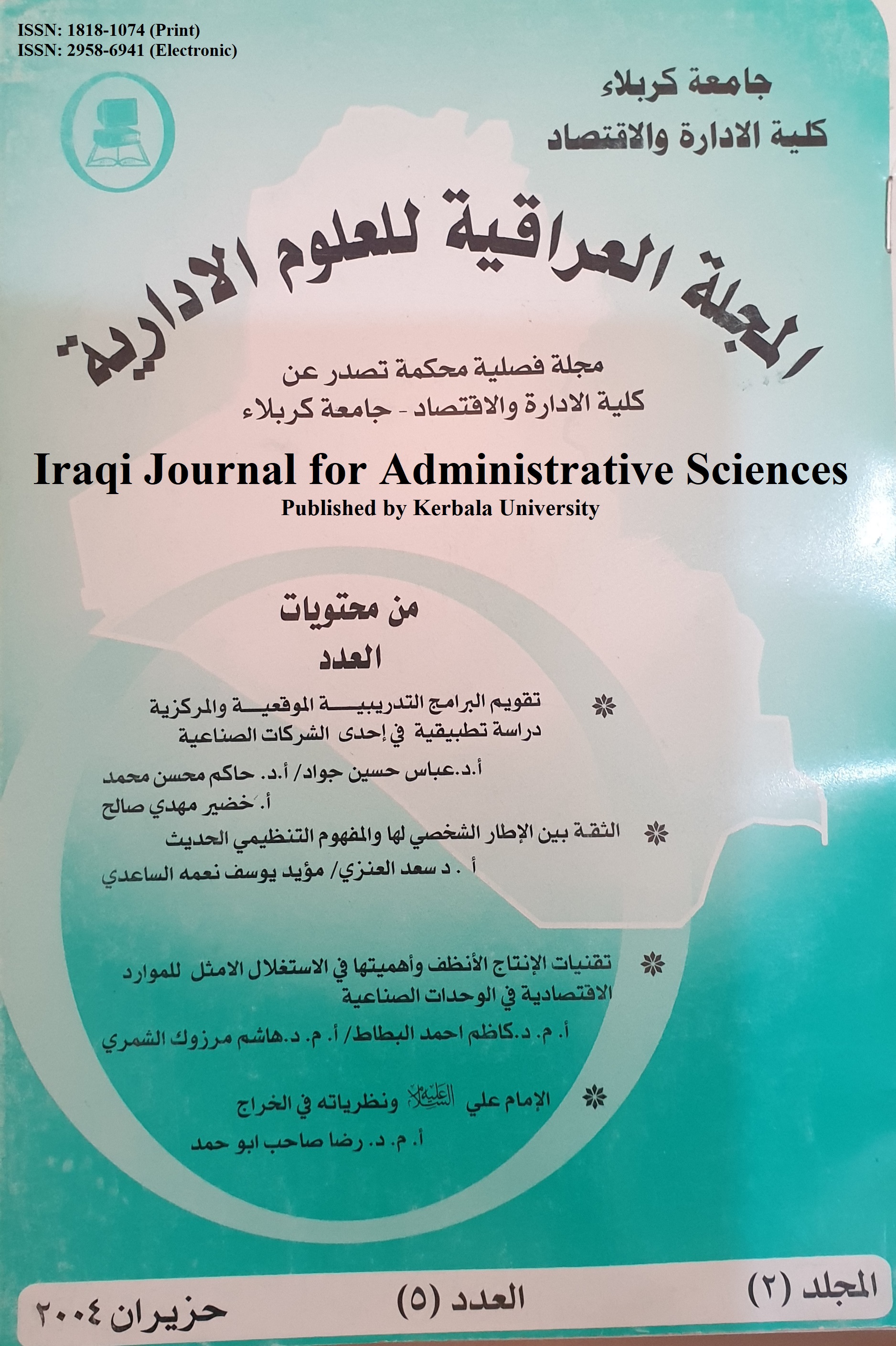Trust between her personal framework and the modern organizational concept
Keywords:
Trust, the organizational conceptAbstract
The issue of trust is generating increasing interest in organizational studies, as he saw. Cambetta, 1988. The study of the issue of trust is an essential and inevitable factor for social interaction. The importance of trust has been pointed out in many areas such as communication (1967: 104-120), leadership (Atwater: 290-1988-310), and management by objectives (Scott 157-175). (1980) and performance evaluation (1993-93:88), (Cummings and work relations - Lawler, 1992): and self-managed work teams, (Taylor, 1989: 85-89), management (Samuel, 1997:402) (218-221), and groups and teams. And the culture of the organization and (Leana & Burer III, 1999: 538) and organizational social capital. Despite the great interest of writers and researchers in trust, studying it in organizations has remained very difficult for many reasons, including the problems of defining trust itself, the lack of clarity in the relationship between risk and trust, the consequences of trust, and the overlap of some Concepts such as cooperation, dependence, prediction, etc., and studies of trust since the fifties of the twentieth century have dealt with trust in a personal context as a characteristic of personality, and this understanding is no longer compatible with the modern organizational concept, the features of which began to emerge in the last two decades of the century. Twenty, which considers trust as an element of organizational social capital, can be invested in creating and creating value for the organization, just like its other capital.
Downloads
Published
How to Cite
Issue
Section
License
Copyright (c) 2004 https://creativecommons.org/licenses/by-nc-nd/4.0

This work is licensed under a Creative Commons Attribution-NonCommercial-NoDerivatives 4.0 International License.
Authors retain the copyright of their papers without restrictions.










